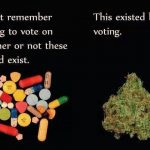According to international press, Raymond Yans from Belgium, president of the INCB, maintains that the application of the law, approved this week in the Uruguayan Senate, violates the Convention on Drugs of 1961
Comment by Joep Oomen – Encod
12 December 2013
The president of the UN body that vigilates the accomplishment of the international norms on drugs launched serious concerns regarding the law that legalises cannabis in Uruguay and maintained that the disrespect of international conventions of which one is party is an attitude of “pirates”.
“This is a typical attitude of prates, when a country decides not to step out of the Convention but not respect it either”, said Yans, president of the International Narcotics Control Board (INCB).
“We hope that the highest authorities of Uruguay understand that this is a mistake, that this is the wrong way to deal with issues of drug control”, said Yans.
Yans owns a long track record in international institutions in charge of repressive drug policy. For 5 years (between 2002 and 2006) he was the chairman of the Dublin Group, a body created by the United states and the European Union to coordinate strategies of erradication and substitution of illicit crops. One of these strategies was Plan Colombia, that costed several billions of dollars without reducing significantly the areas cultivated with coca leaf nor the presence of cocaine on the market.
In its country of origin, Belgium, Yans is known for being an ex-maoist who became a loyal servant of the bureaucratic apparatus, though he maintained his extremist fanatism in the war on drugs.
In Brussels Yans has appeared as a special guest of organisations like “Europe Against Drugs” and similar groups that fight for the maintenance of drug prohibition, some of which are associated to the Scientology Church. Using his contacts on the European front he has made many efforts to stop the influence of organisations advocating for drug regulation in the European debate, on as well as behind the scenes.
In January 2006 the Encod platform had invited the recently elected president of Bolivia, Evo Morales, to a conference on the coca leaf in the European parliament in Brussels. Yans intervened with a clear message to La Paz: if Morales would accept the invitation, Belgium would re-consider its collaboration with Bolivia on other issues of national interest, such as the nationalisation of the oil and gas supplies.
To become the chairman of the INCB, in 2012, must have been a dream come true for this ‘apparatsjik’ willing to defend the undefendable.
In Vienna he can play the drug prosecutor of the world. In may of this year he reminded the US government that the legalization of cannabis for all purposes in Colorado and Washington represented a violation of the Treaties. Today he demands explanations from Uruguay, threatening that legalization for adults will increase criminality and youth use.
“Mafias will concentrate on what is prohibited, and what is still prohibited is the market for minors”, says Yans.
Does he want to avoid that by prohibiting for adults as well?
In one of the worst stigmatisations of cannabis that remind of the 1930s, Yans maintains that “marihuana is a Russian roulette. Its effect on people is never the same”.
And he believes that “in all countries where this drug has been legalised, like Sweden during the 1970s, has there been an enormous increase of drug users in the first years”.
In reality, cannabis was never legal in Sweden. There was an experiment with (poorly) controlled distribution of amfetamines in the 1960s, but since then the country has one of the most repressive drug policies in the world. In Holland, where acces to cannabis for adults has been legal since 1976, consumption figures are lower or equal than in neighbouring countries.
Yans is concerned because the president of Uruguay does not want to receive him.
Mr. Mujica, do not loose your time with this tragical figure in the history of drug policy.




 Creative Commons Attribution
Creative Commons Attribution